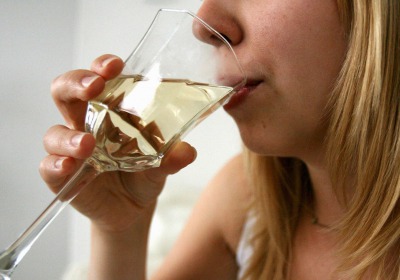Warning for 'morning after' drivers
Tue, 10 Dec 2013MOTORIST DON'T KNOW when it is safe to drive the morning after drinking, according to an AA/Populus survey.
As many as 56% of the 21,165 surveyed were unaware of the "morning-after" dangers, with those from north east and north west the biggest culprits, the poll found.
In the survey, drivers were asked that if they started drinking at 9pm and drank a total of 12 units of alcohol over three hours when they thought they would legally be allowed to drive again.
Generally it takes an hour for the body to get rid of one unit of alcohol but it is also advisable to add an extra hour.
A total of 56% either did not know or selected a time when they might still be over the limit, while 11% of 25-34 year olds thought they would be fine at 9am the next day.
Drivers in north east and north west England were least likely to know when it would be safe to drive (59%), while those in Scotland, London and eastern England were most likely to know when it might be safe (46%).
The statistics came as the AA and drinks company Pernod Ricard UK launched their fourth Christmas anti-drink driving campaign, urging motorists to "accept responsibility" before getting behind the wheel.
The campaign follows the recent publication of police figures showing that in 2011 more people failed breath tests between the hours of 6am and 11am than during the hour before or after midnight.
AA president Edmund King said: "Too many drivers are caught out by being over the limit the morning after the night before. We don't want the morning after to end in mourning disasters, so we are advising drivers to think carefully before driving after a night out."
He added that morning-after calculations were "not a precise science" and the best advice was not to drive at all after drinking.
Pernod Ricard managing director Denis O'Flynn said: " We urge the public to be aware of driving early in the morning after Christmas festivities."
Road safety charity Brake and insurance company Direct Line also published a Christmas message to drivers.
The two organisations appealed to party-goers to help prevent Christmas tragedies by standing up to designated drivers who break their promise by drinking alcohol.
They also released details of a survey they had conducted with 1,000 UK drivers. This showed:
:: 68% of motorists will not drive after having a drink, compared to less than half (49%) a decade ago;
:: 10% admitted driving after drinking so much that they thought they were certainly or potentially over the legal limit in the past year;
:: 81% never drive first thing in the morning after drinking a lot of alcohol - up from 72% a decade ago;
:: Only 36% said they would refuse to get in the car if their designated driver had been drinking;
:: 12% said they had potentially or definitely been a passenger with a driver who was over the limit in the past year.
Brake deputy chief executive Julie Townsend said: "Public attitudes towards drink-driving have shifted dramatically, yet people are still being killed and injured by those who continue to take this inexcusable risk.
"We need action from government to rectify this and put a stop to the carnage that continues to result."
A Department for Transport spokesman said: "Road deaths are thankfully at their lowest since records began in 1926 and the number of drink-drive related deaths has declined overall with 25 per cent fewer deaths in 2012 than in 2009. However, any road death is one too many.
"That is why the government has just launched its THINK! Christmas drink-drive campaign encouraging drivers to think about the devastating consequences that one drink can have.
"We are also taking forward a number of measures to streamline enforcement against drink driving, including approving portable evidential breath testing equipment which will allow for more effective and efficient enforcement."
By Peter Woodman, Press Association



